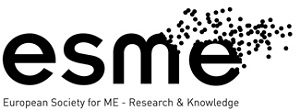 De Canadese, Australische en Britse overheid weigeren allen ME/CVS-patiënten om bloed te doneren. Wij, het Denktank panel van ESME, juichen hun acties toe en geloven dat een gelijkaardig bod zou moeten doorgevoerd worden in alle Europese landen.
De Canadese, Australische en Britse overheid weigeren allen ME/CVS-patiënten om bloed te doneren. Wij, het Denktank panel van ESME, juichen hun acties toe en geloven dat een gelijkaardig bod zou moeten doorgevoerd worden in alle Europese landen.
ME/CVS-patiënten zouden geweigerd moeten worden om bloed te doneren, voor twee redenen.
- De eerste is om de patiënten te beschermen: ME/CVS veroorzaakt een brede waaier aan symptomen die zouden kunnen verergeren wanneer men bloed doneert.
- De tweede reden is om er zeker van te zijn dat de bloedvoorraad veilig blijft. Men heeft nog niet volledig de oorzaken van ME/CVS uitgeklaard, maar het werd recent in verband gebracht met een nieuw retrovirus: XMRV.
Een studie van het Whittemore Peterson Institute heeft XMRV retrovirus opgespoord bij meer dan 95% van 200 geteste patiënten met ME/CVS, fibromaylgie en atypisch MS. XMRV lijkt erg op het HIV-virus en men denkt dat het op dezelfde manier overgedragen wordt, via lichaamsvochten zoals bloed, speeksel en borstmelk.
Totdat het verband tussen XMRV en ME/CVS volledig begrepen is, is het raadzaam om bloeddonaties van deze patiënten te verbieden.
Het is belangrijk om nu te handelen aangezien besmet bloed nu al ME/CVS kan verspreiden in de bevolking. Er zijn gedocumenteerde gevallen bekend die ziek werden onmiddellijk na bloedtransfusie (Bron: National ME/FM Action Network)
From: Legal Disability Manual for Fibromyalgia Syndrome and Myalgic Encephalomyelitis/Chronic Fatigue Syndrome
Editor: Marjorie van de Sande, National ME/FM Action Network
FMS & ME/CFS Overview
Blood Transfusion and Chronic Fatigue Syndrome
K. De Meirleir, P. De. Becker, I. Campine.
Human Physiology and Medicine
Vrije Universiteit Brussel, Brussels, Belgium
Reprinted with permission from Dr. De MeirleirPresented at the Sydney February 1999 CFS Conference.
We analysed the data of 1210 consecutive patients complaining of chronic fatigue who visited our fatigue clinic at the Vrije Universiteit Brussel.In this group, 752 patients fulfilled the CDC criteria for CFS (Fuduka, 1994). Of those CFS patients, 34 (4.5%) have a common factor in their past medical history that immediately preceded the onset of their CFS. These patients had received a blood transfusion a few days to a week prior to developing a flu-like syndrome that later proved to be the acute onset of their CFS. Another 8 patients also received a blood transfusion but their illness only started at least two months later, so that we cannot take these patients into our calculations.
None of these post-transfusion patients developed hepatitis C or other types of viral hepatitis. Some have antibodies (IgG) in time relationship to the blood transfusion could not be determined. In 9 of 35 patients the LMW RNase L account for the upregulation of the total RNase L enzyme activity. This 2-5A synthetase Rnase L pathway is activated in viral disorders.
We moedigen u aan om uw gezondheidsministers te contacteren en hen te vragen om ME/CVS-patiënten te verbieden om bloed te doneren.
Zie ook:
- Canada
- Verenigd Koninkrijk
- Verenigde Staten: klik hier of hier
- Australië: klik hier of hier
- Nieuw Zeeland
ESME Denktank artsen:
- Prof. Dr. Med. Kenny De Meirleir
- Prof. Dr. Bodil Norrild
- PD Dr. Liv Bode
- Prof. Dr. Hanns Ludwig
- Dr. Med. Derek Enlander
- Prof. Dr. Med. Umberto Tirelli
- Prof. Dr. Med. Ola Didrik Saugstad
- Prof. Dr. Med. Babill Stray-Pedersen
- Dr. Med. Ana Garcia Quintana
- Dr. Med. Mette Johnsgaard
© Vertaling ME-Gids.net van “ESME Think Tank Panel: Call to Ban ME/CFS- blood Donations in Europe” (5 mei 2010)






